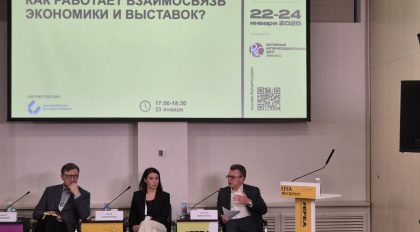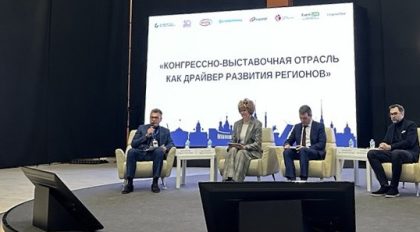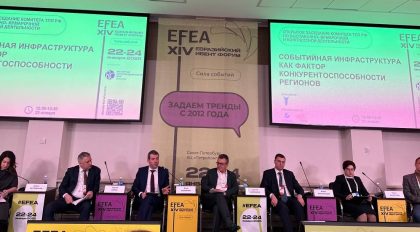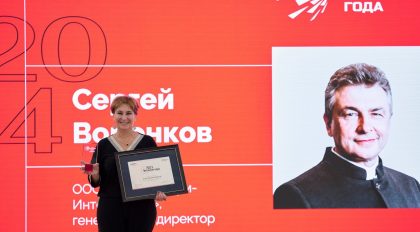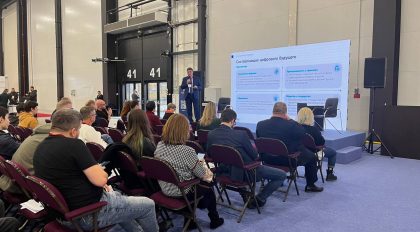On January 23, at the 14th Eurasian Event Forum 2025, the Russian Union of Exhibitions and Fairs (RUEF) organized the Panel Discussion «Strategy Ahead of Time. How Does the Relationship Between Economy and Exhibitions Work?».
The Session participants discussed the global mission of exhibitions today, what values and meanings they should create and convey, whether it is possible to measure a country’s exhibition potential, where to look for promising niches for development, whether Russia can launch world-class industry exhibitions, and other issues.
The discussion was moderated by Sergey Voronkov, President of the RUEF.
«The convention and exhibition industry produces an independent product that is not purely a service one, but a self-sufficient value. This product is live communication that develops into contracts and positive impressions. Therefore, the industry is a driver of the economy and a new institution of socialization. The power of events is in the fact that they have become a powerful tool for developing and solving specific problems for countries, regions and industries. Many exhibitions and congresses on subjects where there are no line ministries serve their function. They gather knowledge, experience, and competencies, and coordinate all the industry participants», said Voronkov.
He also noted the importance of developing the convention and exhibition industry in the regions.
«Each region has unique competencies that are unparalleled within the country. And some of them – on a global scale. Therefore, each region should have key federal and international events related to their main specializations», believes the speaker.
Voronkov also noted the need for developing an all-Russian calendar of events based on integration with the Atlas of Economic Specialization of Russian Regions, to be presented by Sergey Artemov, Deputy Director of the Institute for Statistical Research and Economics of Knowledge at the National Research University «Higher School of Economics».
Anna Manvelova, CEO of ITEMF Expo, spoke about the MIMS Automotive Moscow Exhibition.
«The exhibition is a mirror and a driver of the industry. It cannot develop despite the negative dynamics of the industry. MIMS Automotive Moscow began as a car dealership, and eventually transformed into the exhibition of spare parts, car kits and equipment, responding to the growth and needs of the market. Today, the exhibition itself has already been shaping the market. Since 2022, the membership has changed by 70%. European manufacturers are gone. Asian companies have taken their place, but what particularly encourages is that Russian manufacturers have participated in filling the vacuum», said Manvelova.
Aleksander Ulyanov, CEO of NEVA International LLC, spoke about creating network projects in the regions, using the example of the International Shipbuilding Exhibition and Conference «NEVA».
«We started entering the regions by asking if they had something useful for the entire industry nationwide. And if the answer is yes, it means that an international congress project can be implemented in the region, which would thematically complement our main exhibition project «NEVA». We conducted the industry expertise, selected regions of interest to us, talked with their leaders, and thus projects were born in Moscow, Vladivostok, and Arkhangelsk. Kaliningrad, Murmansk, and Nizhny Novgorod are among the promising destinations.
Vladivostok’s situation was unique: the region had been waiting for a project that could bring together the entire shipbuilding industry. Given the new geography of cooperation with Asian countries, additional opportunities opened up for us. But there were also difficulties in terms of the fact that in China people did not understand what a congress project was. It’s much easier to sell an exhibition to them», said Ulyanov.
Anton Atrashkin, Program Director of the Exhibition «INNOPROM», Anna Dycheva-Smirnova, Managing Director of ExpoVisionRus LLC, Andrey Zhukovsky, Chairman of the Board of Directors of RussCom IT Systems LLC, and Aleksandra Sakayeva, Vice President of SOYUZLEGPROM LLC, also took part in the discussion.
